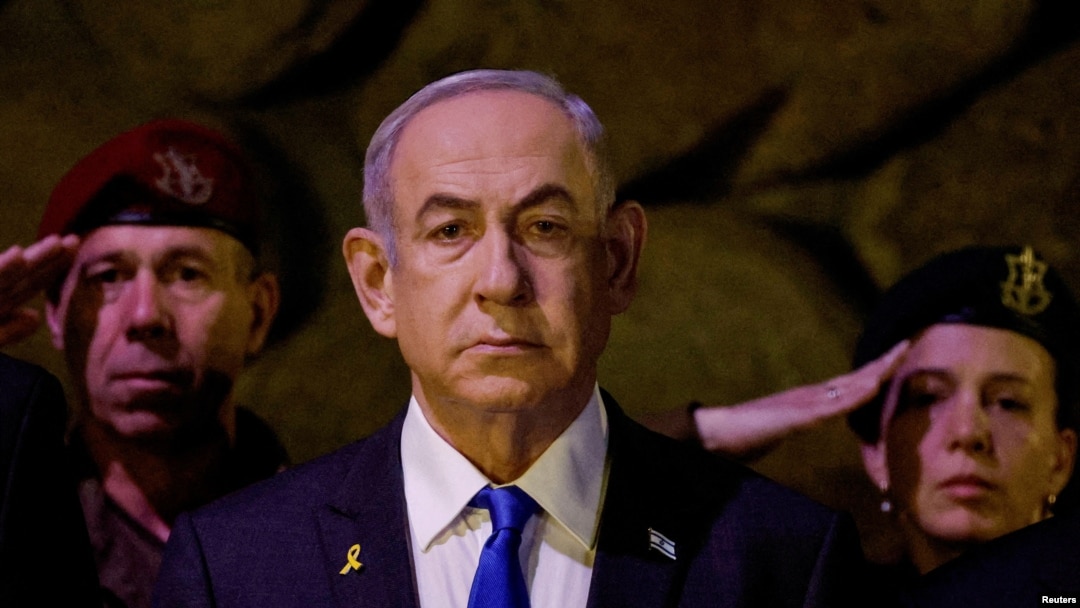U.S. President Joe Biden, increasingly critical of Israel's conduct of its war against Hamas militants in Gaza and a mounting Palestinian death toll, said in an interview published Tuesday that there is "every reason" to believe Prime Minister Benjamin Netanyahu has dragged out the conflict to save himself politically.
But when asked later Tuesday whether Netanyahu was playing politics with the war, Biden seemed to backtrack, telling reporters, "I don't think so. He's trying to work out a serious problem he has."
Last week, Biden announced an Israeli proposal for a Gaza cease-fire and pushed for global support of it. Hamas has yet to agree to it, and Netanyahu has been reserved in his comments about it, prompting Biden's remark to Time magazine about Israel's prime minister dragging out the war.
Your browser doesn’t support HTML5
Hamas won’t support Biden peace plan without Israeli assurances of permanent cease-fire
Netanyahu on Monday downplayed the immediate prospects for a cease-fire in the war with Hamas in Gaza, saying that a deal was a partial outline.
As the war nears the eight-month mark, the Israeli leader faces conflicting demands: Biden and other world leaders urge him to end the conflict, while right-wing lawmakers in the Israeli parliament say they will upend Netanyahu's government if he agrees to a cease-fire without first erasing the last vestiges of Hamas control in Gaza.
Hamas said Tuesday it cannot agree to any deal unless Israel makes a "clear" commitment to a permanent cease-fire and a complete withdrawal of troops from Gaza. Netanyahu has often said Israeli forces will not leave Gaza without eliminating all Hamas elements from the territory.
Qatar, which alongside the United States and Egypt has been mediating Hamas-Israel talks in Cairo, has also urged Israel to provide a clear position on its intentions, one that has the backing of its entire government to reach a deal.
Biden acknowledged that he and Netanyahu have had tense relations as the death toll in Gaza has soared past the 36,000 mark — a figure that includes both civilians and combatants.
They are particularly at odds over whether a revitalized Palestinian Authority should govern Gaza after the war, which the United States favors, and Netanyahu rejects without offering a detailed plan of his own.
"My major disagreement with Netanyahu is, what happens after ... Gaza's over? What, what does it go back to? Do Israeli forces go back in?" Biden asked rhetorically.
"The answer is, if that's the case, it can't work," he said.
White House national security spokesman John Kirby said Biden, in the Time interview, "was referencing what many critics have said" about Netanyahu's actions, but that the U.S. will "let the prime minister speak to his own politics and to what his critics are saying."
"For our part though, he and Prime Minister Netanyahu do not agree on everything, and he talked in that interview about some of the things they don't agree on, such as on a two-state solution," a newly formed Palestinian state living alongside Israel.
SEE ALSO: UN human rights office condemns Israel’s action in West BankThe fate of a proposal to halt fighting in Gaza remained uncertain Tuesday. Hamas has yet to give a definitive response to the proposal, Israeli officials are questioning some of the details, and the United States is seeking U.N. Security Council support for the deal's acceptance and implementation.
A draft U.S. resolution seen by VOA calls on Hamas to fully accept and implement the cease-fire proposal "without delay and without condition."
The basic outline of the deal includes a six-week halt in fighting, the release of some hostages from Gaza, daily deliveries of 600 trucks of aid for Palestinians, and further negotiations aimed at securing a permanent end to the conflict.
U.S. officials reiterated Monday that the cease-fire proposal, though presented publicly by Biden last week, is an Israeli proposal.
Kirby told reporters that making public negotiations that officials had declined to reveal in the past for fear of disrupting the negotiation process was not about putting pressure on Israeli officials, but rather, if anything, publicly pressuring Hamas and its leaders to accept the deal.
"The president felt that where we are in this war, where we are in the negotiations to get the hostages out, that it was time for a different approach and a time to make the proposal public, to try to energize the process here, catalyze a different outcome," Kirby said.
Kirby said in earlier comments to reporters that if Hamas were to accept the proposal, Israel would, as well.
Netanyahu told a parliamentary committee Monday that "claims that we have agreed to a cease-fire without our conditions being met are incorrect," according to a statement from his office.
Hana Abdelrahaman al-Rai, a 4-year-old suffering from malnutrition and displaced from Gaza City, reacts as she is carried outside a tent in Zawayda in the central Gaza Strip on June 4, 2024.
Hamas launched the October 7 terror attack on Israel, killing about 1,200 people according to Israeli tallies, and taking roughly 250 hostages. About 120 of the hostages remain in Gaza, although the Israeli military says 37 of them are dead.
Israel's retaliatory bombardments and ground offensive have killed at least 36,400 people in Gaza, mostly civilians, according to the Gaza Health Ministry.
On Tuesday, at least 11 Palestinians were killed in an Israeli airstrike in central Gaza, local hospitals said. Elsewhere, two policemen were killed while helping to protect humanitarian aid deliveries in Rafah, Palestinian medics told Reuters.
Some information for this report was provided by The Associated Press, Reuters and Agence France-Presse.


